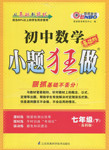题目内容
阅读理解
Eating in western restaurants can be a little confusing because they are a little different from eating in Chinese restaurants. If you understand that, you can have a more relaxing time because you won't be so worried about embarrassing yourself.
When you first arrive at the restaurants you should wait for one of the restaurant staff to show you to a table. Sometimes it is OK to find a table for yourself but it's better to wait.
In a western restaurant, each person generally orders their own food or dishes and eats. what they order. Western people don't usually put all of the food in the middle of the table and share unless they are eating pizza.
One of the biggest differences between Chinese restaurants and western ones is the noise. Most western restaurants are quiet and people spear in quiet voices, they avoid shouting, especially to the staff.
Both Chinese and western people love to drink with their food especially wine or beer. The difference is that usually there will only be one or two toasts during the meal. It is not necessary to toast each time you pick up your glass. When the bill at the end of the meal comes, most people like to divide the bill equally by the number of people eating. This is called “going Dutch”.
If the service and the food have been good, you should leave a tip. Usually ten percent of the bill is a good tip.
1.From this passage we know there are ________ differences between Chinese restaurants and western ones.
[ ]
2.In western restaurants, people are usually ________ and speak in ________ voices.
[ ]
3.In the passage “staff” means ________.
[ ]
4.When western people drink, they usually ________ during the meal.
[ ]
5.Which of the following is wrong?
[ ]
A.Western people divide the bill equally by the numbers of people eating.
B.Western people usually have a tip after eating. This is called “going Dutch.”
C.Western people order their own food or dishes and eat what they order in the restaurants.
D.Western people never shout to the staff or raise their hands and waves at them when they need service.

 小题狂做系列答案
小题狂做系列答案
| |||||||||||||||||||||||||||||||||
| |||||||||||||||||||||||||||||||||
| |||||||||||||||||||||||||||||||||||||||||||||||||||||||||||||||||||||||||||||||||||||||||||||||||||||